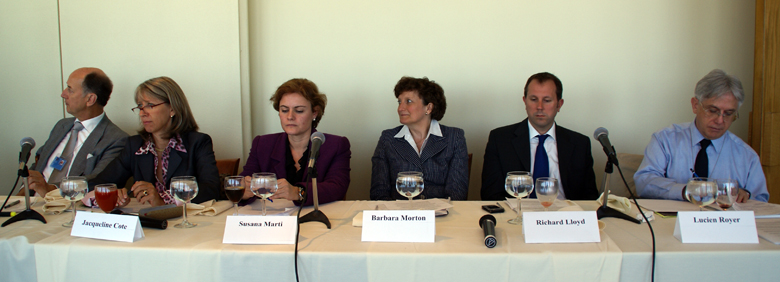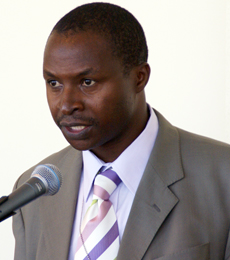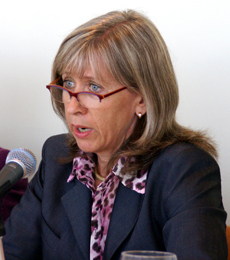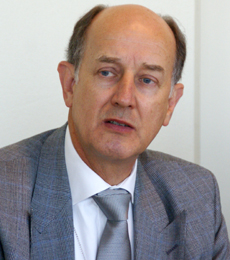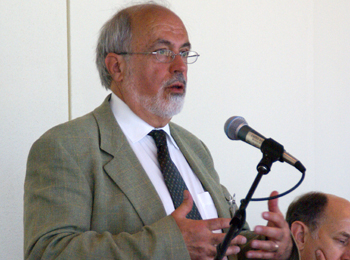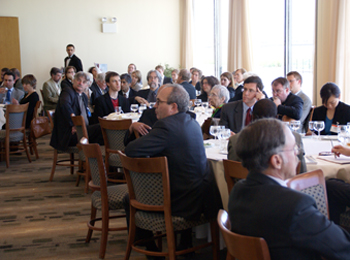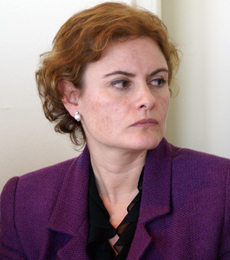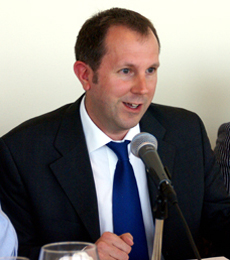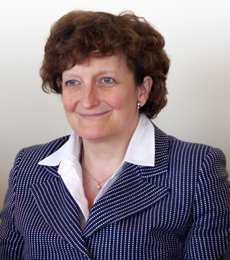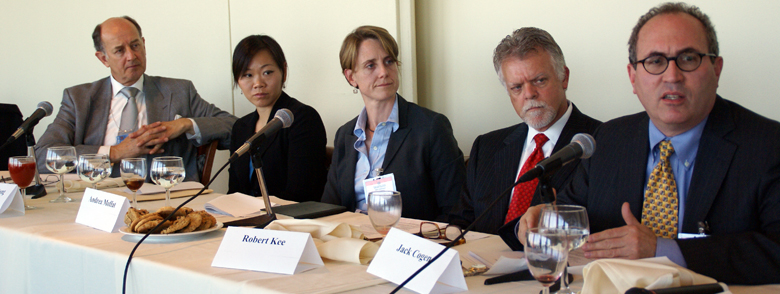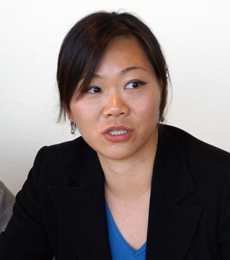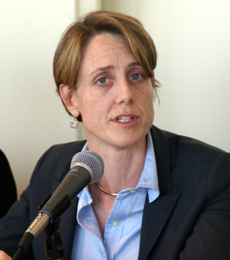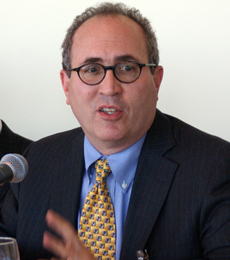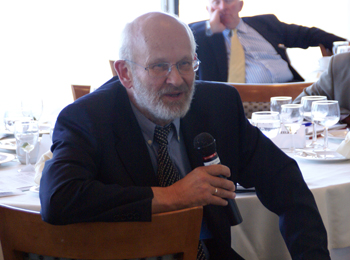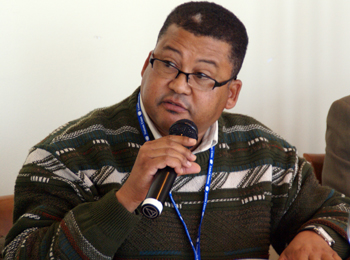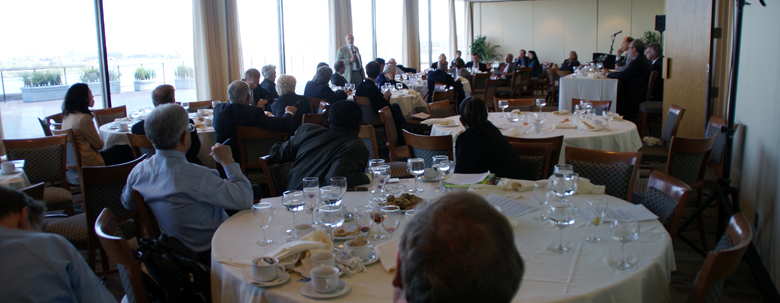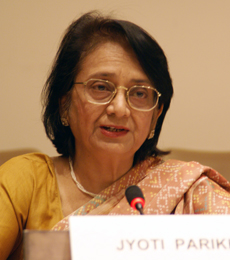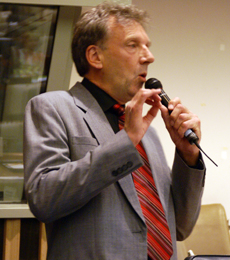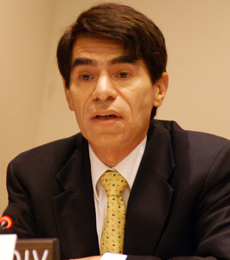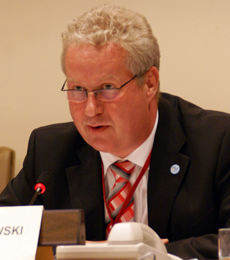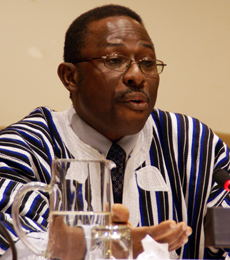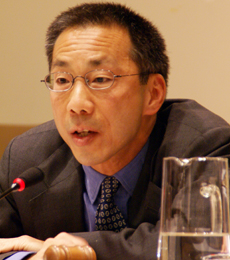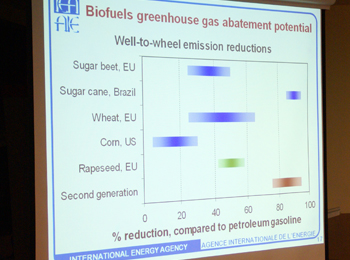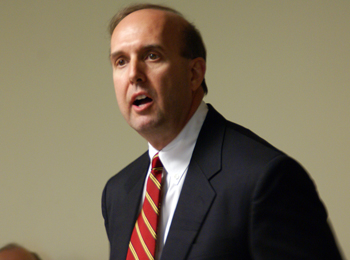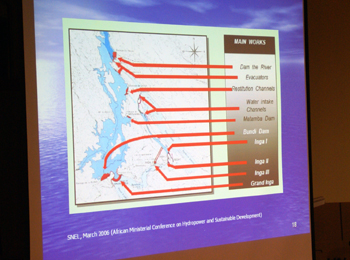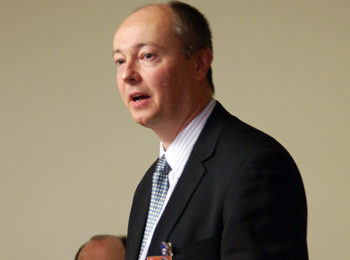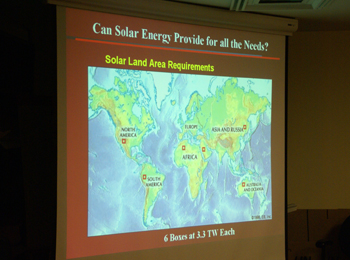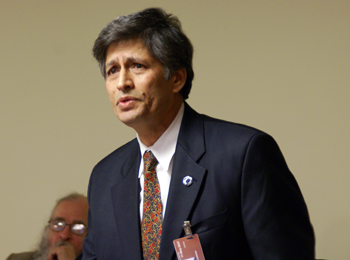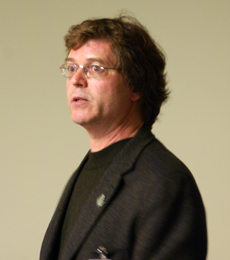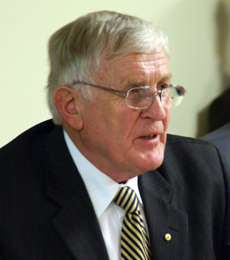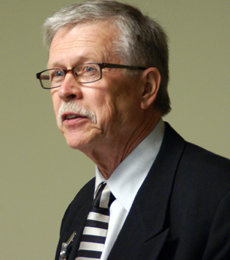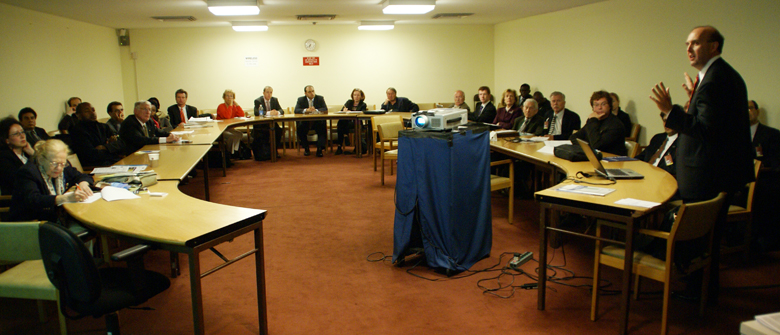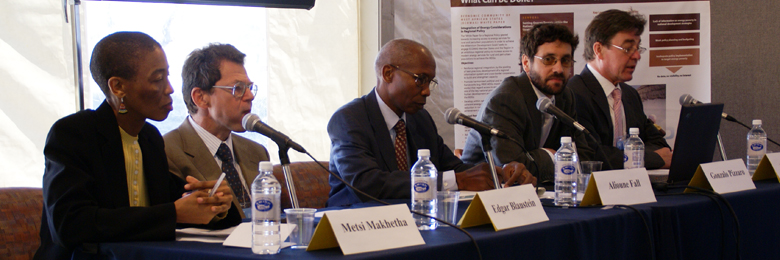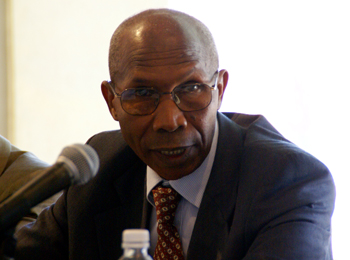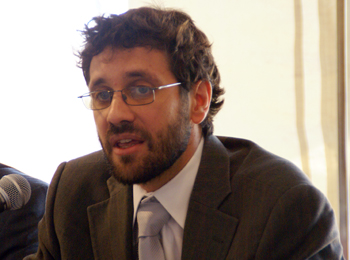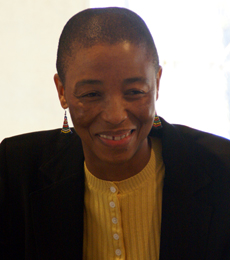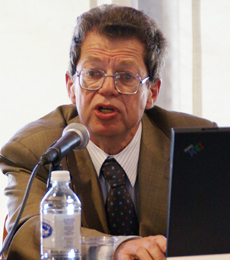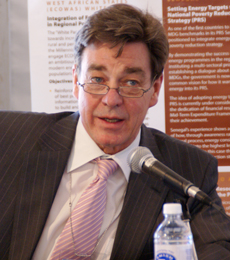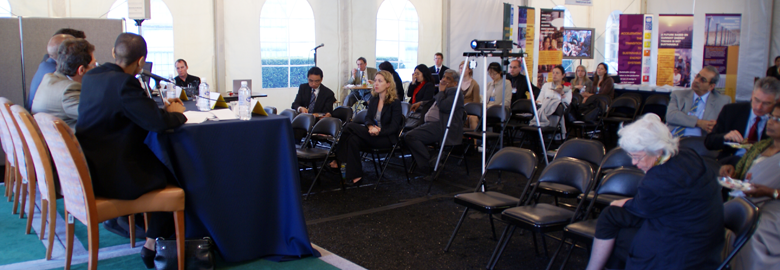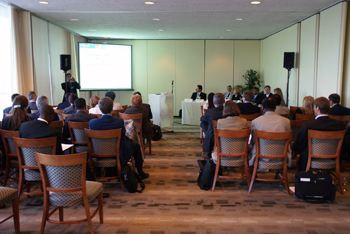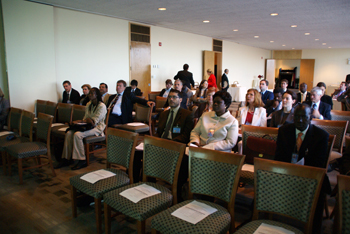 |
||
|
published by IISD, the International Institute for Sustainable Development
in cooperation with the UNDP Secretariat |
|||
|
Special Report on Selected Side Events at the Fifteenth Session of the Commission on Sustainable Development (CSD-15)
|
|||||
| 30 April - 11 May 2007 | United Nations headquarters, New York | |||||
 |
 |
|||
 |
||||
Events convened on Monday, 7 May 2007
|
|||||||
|
Facilitator Paul Hohnen welcomed participants to the side event and described the “Class of 2006,” a report on the progress made by business and industry towards sustainable development since the WSSD in 2002. Paul Hofseth, Ministry of the Environment, Norway, highlighted the Oslo Conference on Good Governance and Social and Environmental Responsibility and called for the adoption of the OECD Guidelines for Multinational Enterprises. Tshenge Demana, Department of Trade and Industry, South Africa, urged UNEP to profile effective initiatives to implement sustainable development in developing country businesses. David Runnalls, President of IISD, described three studies that IISD is conducting on timber, cotton and e-waste supply chains to China, and addressed the need to explore the limits of multinational companies’ voluntary actions for reporting on economic, environmental and social performance. Panel 1: Jacqueline Coté, World Business Council for Sustainable Development, said that a thriving small and medium-sized enterprise sector is critical to economic growth. Susana Marti, Telefonica, described her company’s efforts in Latin America to improve the sustainability performance of its suppliers. Barbara Morton, DEFRA, UK, discussed the UK Government Sustainable Procurement Action Plan to ensure that supply chains and public services have increasingly low carbon emissions and deliver wider sustainable development goals. Richard Lloyd, Consumers International, discussed how consumer purchases are affected by development, human rights and environmental issues, highlighting the need for governments to provide public education to change consumers' behavior. Lucien Royer, Trade Union Advisory Committee to the OECD, highlighted an investigation into Gold Peak Industries’ use of cadmium in its manufacturing facilities in China, and called on the international community to help remedy the situation. Panel two: Angeline Kung, Goldman Sachs, described her company’s environmental policy framework, and highlighted involvement in a proposed leverage buyout of TXU Corporation, a Texas utility, with a goal of returning TXU's carbon dioxide emissions to 1990 levels by 2020. Jack Cogen, Natsource LLC, called for mandatory actions in the supply chain in order for the industrial society to implement sustainable development measures. Robert Kee, Bank of America, said his company would commit $18 billion in lending to help commercial clients finance the use and production of new products, services and technologies for addressing climate change. Mark Radka, UNEP, looked forward to continued work with the event’s co-hosts to advance sustainable development. |
||||
|
|||
|
Chris Powell, WHO, introduced and facilitated the side event.
Noting that 2.5 billion people worldwide rely on biomass for heating and cooking, Carlos Corvalán, WHO, said that to address the energy crisis at the household level, governments should commit to clean energy targets, such as halving the amount of people who use traditional biomass for cooking by 2015. Jyoti Parikh, Integrated Research and Action for Development, India, said that energy access programmes need stratification since there are varying needs and capabilities to access and pay for the various fuel options. She noted the need for low-cost solutions and the need to involve women in the solutions. Wisdom Ahiataku-Togobo, Ministry of Energy, Ghana, emphasized that reducing indoor air pollution is a big challenge for most developing countries, most notably in sub-Saharan Africa, and said that to significantly reduce the problem, an extensive public awareness campaign is needed. Kimball Chen, World Liquefied Petroleum Gas Association, highlighted the challenges of LPG access, including: increasing the population’s purchasing power through job creation; and developing consumer desire and the political will to make LPG part of the economic equation. Arno Tomowski, GTZ, highlighted the need for: improved cooking technology; raising awareness at the national level of alternative cooking technologies to create demand; and capacity development for entrepreneurs. Participants discussed, inter alia: the viability of solar cookers to address large energy needs; entrepreneurship as a means for tackling access to energy at the regional level; and the benefits and disadvantages of subsidies. |
|||
|
|||
|
Peter Rae, IREA, stated that 20% of global electricity generation currently comes from renewable energy sources. He highlighted the need to examine renewable energy’s potential in Africa and Asia as they are key regions for implementing the MDGs, and noted that forms of renewable energy are available in every country. Robert Dixon, IEA, stated that although renewable energy is undergoing rapid growth, the global energy supply is still dominated by fossil fuels. He said that no single technology can “do it all” and that each country should consider which energy resources they have available. Richard Taylor, International Hydropower Association, said that Africa and Asia are important regions for future hydropower development, and have currently developed only 7% and 22% respectively of their realistic potential. He stated that hydropower is clean and very cheap in the long term, although upfront costs can be high, and added that hydropower can be used in combination with wind power or geothermal energy to combine base load power with peak load capacity. Yogi Goswami, University of Florida, highlighted massive recent growth in use of solar water heating, especially in China. He said that new technologies are expected to cut the cost of photovoltaic electricity generation to one-third of current levels within the next six years. He emphasized that some solar technologies require almost no maintenance and last for over 30 years, making them a good choice for rural regions and areas with limited technical expertise. Brent Kopperson, World Wind Energy Association, reported that global wind power generating capacity has grown fivefold since 1999. Noting wind power generation’s decentralized nature, he said it can provide energy security, carbon offsets, sustainable income for local communities, and increased value for agricultural land. Gordon Bloomquist, International Geothermal Association, outlined new developments in geothermal technology. He added that indirect geothermal energy can be applied for heating and cooling by any country, even those far from volcanic zones, with conventional equipment and minimal start-up time. Participants discussed political will, noting that more government investment in renewables is required, especially as fossil fuel use is currently highly subsidized. |
|||||
|
|||
|
Philip Dobie, UNDP, opened the event, underlining that mainstreaming energy into national development strategies (NDSs) and poverty-reduction strategy papers (PRSPs) is difficult as many issues compete for financing and political attention, but that it is the only way to achieve energy services for the poor.
Gonzalo Pizarro, UNDP, stressed that development assistance works when there is international partnership and a focus on: building political will and government ownership of the issue; letting government timelines drive the process; engaging UNDP in a leadership role; mobilizing the UN system for in-depth technical support; and engaging international donors and financial institutions early in the process. Alioune Fall, World Energy Council, said that while Senegal’s first PSRP did not link energy services and poverty alleviation, dialogue with UNDP and the World Bank had resulted in mainstreaming the MDGs and energy into the second PSRP. He reported that Senegal’s second PSRP: recognizes the connections between the energy sector and other sectors including social services, agriculture, and gender empowerment; and emphasizes the need to improve health, education, communication and water services through the extension of energy services, especially in rural areas. Edgar Blaustein, on behalf of the French Ministry of Foreign Affairs, said improved energy access is essential for achieving the MDGs but the private sector in Africa has been unable to achieve it alone, making public action necessary. As a precondition for public action, he recommended creating high-level political will by demonstrating success stories, and particularly emphasized the role of regional economic councils, which can catalyze awareness between countries with similar circumstances. Blaustein added that regional economic councils can also provide technical support and training, and build the critical mass needed for action and progress. Metsi Makhetha, UNDP, highlighted three West African success stories: a regional framework on energy access through the Economic Community of West African States; alignment of energy access with Senegal’s PRSP; and using highly indebted poor country (HIPC) funding to expand energy services in Mali and Burkina Faso. Participants discussed how to get energy policy makers to look at the entire energy system, including cooking fuels, rather than simply focusing on electrical grid expansion, and how to ensure that policy is not “poverty-neutral” but that it instead specifically addresses energy access and distribution to the poor. |
|||
|
|||
|
||
|
Click the above button to go back to our ENB main coverage
|
||
|
|
|
|
|
||
|
